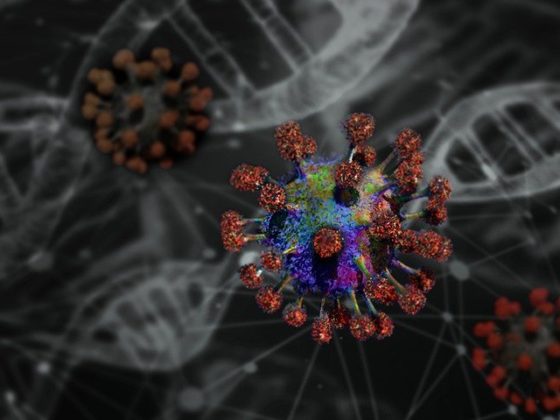Coronavirus in the Netherlands: what you need to know


With the number of coronavirus cases in the Netherlands continuing to increase, here is a summary of the latest official Dutch information about preventing the spread of the disease – in English.
Here’s what you need to know:
If you live in Noord-Brabant
If you live in Noord-Brabant (including Eindhoven, Tilburg, Breda and Den Bosch) the official advice is to work at home when possible.
You must also limit your social contacts as much as possible for the next few days.
Contact your family doctor by phone if you have returned from one of key areas within the past 14 days and develop a temperature of at least 38 degrees or respiratory symptoms (coughing or shortness of breath). The same applies if you have had contact with a known patient.
If you have mild symptoms, stay home and avoid contact with others. If the symptoms get worse, contact your family doctor by phone.
The key areas (updated March 11):
- China (including Hong Kong)
- South Korea
- Iran
- Italy
If you live elsewhere in the Netherlands:
If you have mild symptoms, stay home and avoid contact with others. If the symptoms get worse, contact your family doctor by phone.
Contact your family doctor by phone if you have returned from one of key areas within the past 14 days and develop a temperature of at least 38 degrees or respiratory symptoms (coughing or shortness of breath). The same applies if you have had contact with a known patient.
Tests
Tests for coronavirus can only be requested via the local health board or a hospital and it takes around 24 hours for the test results to come through.
Testing is currently only being carried out on people who have worsening symptoms and have been in an at risk area or in contact with people who have coronavirus.
The RIVM has an interactive map showing where corona infections are being confirmed.
Tracing contacts
The disease is transmitted from human to human. At the moment officials are assuming that one sick person can infect two or three others on average. The sicker a person becomes, the more likely they are to spread the virus.
Local health boards (GGDs) are carrying out investigations into the contacts of people diagnosed with the disease.
All contacts are monitored by the GGD for 14 days after their last contact with the patient and must monitor their health and inform the GGD if there are any changes.
Family contacts are being asked to stay at home and have as little physical contact with other people as possible. If they show symptoms, they will be tested.
Travel
The Dutch foreign affairs ministry has recommended people avoid all but essential travel to China and do not visit the province of Hubei where the outbreak of coronavirus started.
In addition, travellers are being told to avoid all but essential travel to all of Northern Italy. See map for latest information
Hygiene
The Dutch public health institute RIVM and World Health Organisation say everyone should follow these instructions to prevent infection:
- Avoid shaking hands and physical contact
- Wash your hands frequently and thoroughly with soap or alcohol rub
- Sneeze into a tissue or your elbow
- Use paper tissues and dispose of them immediately
- Stay away at least one metre away from people who are sneezing or coughing
- Avoid touching your face with your hands, which may have picked up the virus
The RIVM says face masks should only be worn by medical staff. Most of the paper masks used by the general public are worthless and offer a false sense of security, officials say.
Is there any specific information for schools?
The Dutch secondary school association website has an information section (in Dutch) with links and recommends schools follow the instructions of the RIVM. It also recommends schools contact their local health boards with specific questions.
Is there any specific information for universities?
The Dutch university association VNSU has general information available on its website but individual universities all have their own specific information pages. Check your own university’s website and social media platforms.
If you have any questions, please contact the RIVM on 0800-1351.
The information in this article is based on RIVM and WHO recommendations and is updated as the policy changes. Last updated March 11.
Readers’ request
We would like to know how coronavirus is impacting on your life in the Netherlands and if you feel your are getting all the information you need. Please take a couple of minutes to fill in this short and completely confidential survey.
Thank you for donating to DutchNews.nl.
We could not provide the Dutch News service, and keep it free of charge, without the generous support of our readers. Your donations allow us to report on issues you tell us matter, and provide you with a summary of the most important Dutch news each day.
Make a donation